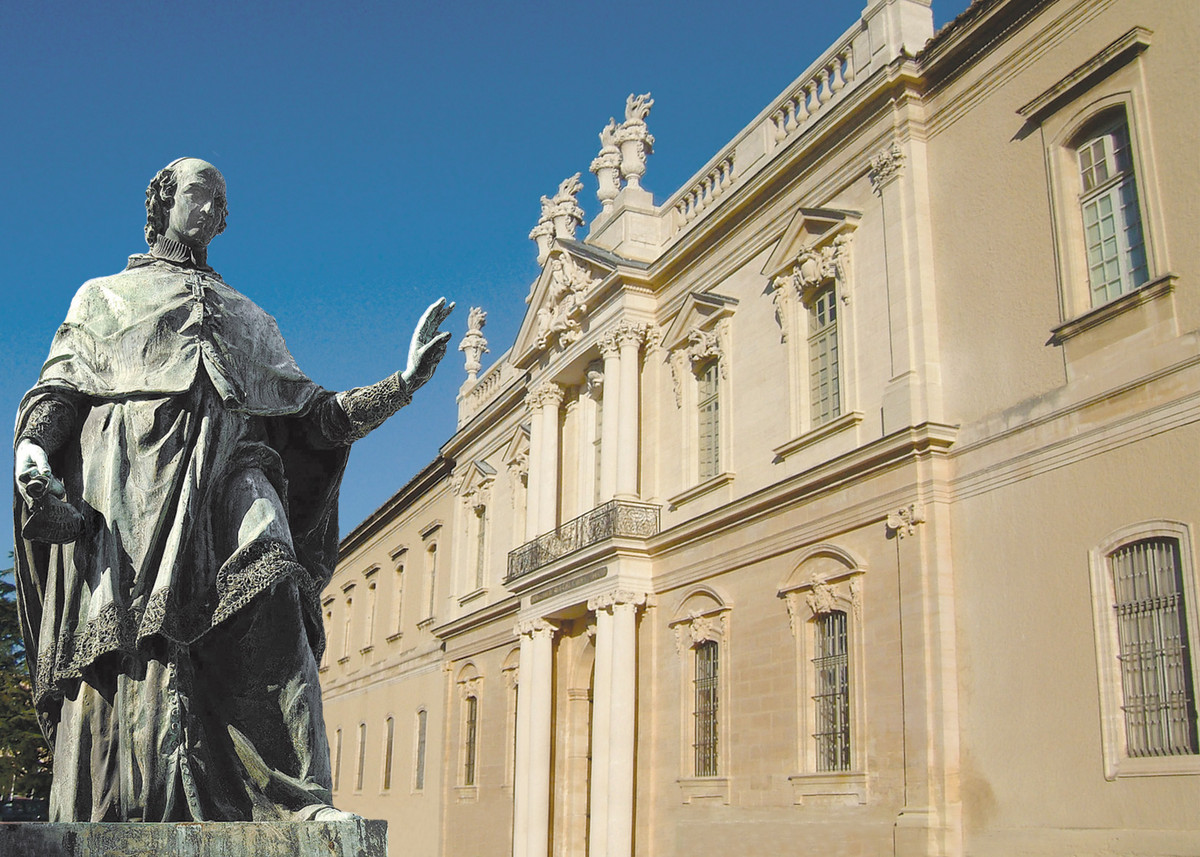The local collection
Since its creation, the Inguimbertine has been collecting manuscripts, publications and iconography about the history and culture of Carpentras, the Comtat Venaissin, and the broader Vaucluse/Provence region. The Barjavel collection, bequeathed in 1868 by Casimir-François-Henri Barjavel (doctor, Mayor of Carpentras, collector, and historian), contains a great number of publications of all kinds relating to local culture, with Barjavel himself having written a reference work, A historical, biographical and bibliographical dictionary of the Vaucluse department, published by Devillario in Carpentras in 1841.
The Provençal language is also represented in unique and remarkable documents, such as the copy of the Vaudois Bible from the 14th century and the miniature family record book of an inhabitant of Provence in the 16th century. Documents from Carpentras members of the Félibrige movement, such as François Jouve and Rémy Marcellin, also significantly added to the collections of 20th century Provençal literature. The local collection also includes work from French-speaking authors whose novels and novellas were set in and around the Comtat Venaissin, such as Jules de la Madelène (1820-1859), Henry de la Madelène (1825-1887) and André de Richaud (1907-1968).
The Inguimbertine has most original editions of André de Richaud’s work, as well as several re-editions and his autograph correspondence. Finally, multiple editions of local periodicals from the time of the French Revolution to the present day are also conserved in the collections, such as L'Armana dou Ventour, Calendau, Le Journal de la Comtadine, Le Ventoux, Le Tohu bohu carpentrassien, Les carnets du Ventoux, Les Études comtadines and L'écho des carrières, alongside almost 400 others.
The catalogue of the modern local collection and the study collection
The monographs and collections of periodicals acquired over recent decades relating to Carpentras, the Comtat Venaissin, the Ventoux area, and sometimes the entire Vaucluse region, make up the modern local collection.
The documents are recorded in the heritage catalogue.
Some copies can be borrowed from the library. A study collection, composed of works from 1914 to the present day with a focus on the human sciences, literature, or otherwise relating to the Inguimbertine’s collections, is also available under the same conditions.






